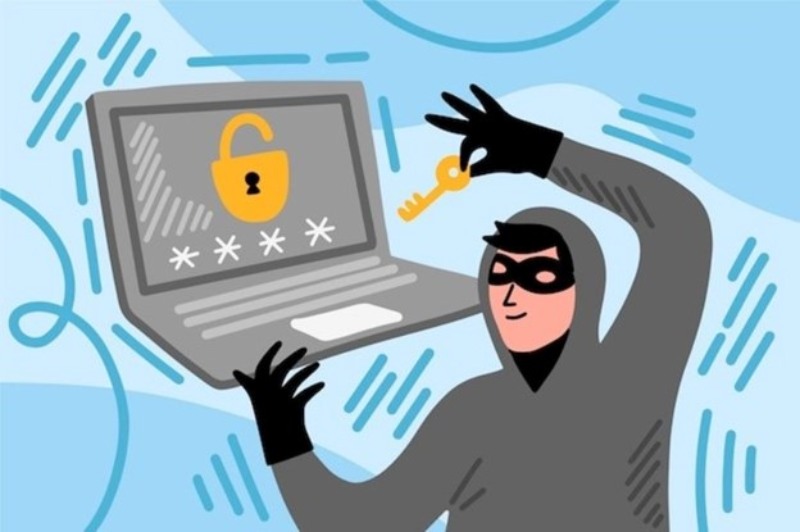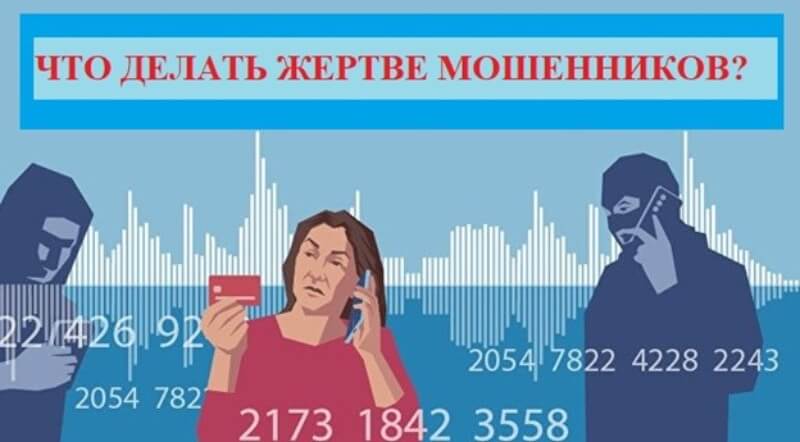With the advancement of digital technologies, fraudsters are becoming more inventive. From phone calls and fake letters to counterfeit websites and specially crafted schemes, perpetrators are constantly coming up with new methods of deception.
Main Rules of Conduct
Panic – a bad advisor if you find yourself trapped by fraudsters. In the first few moments, few can keep a cool head, and many do not know what to do after a scam. The main rule is to rationally assess the situation and remain calm.
1. The first step after realizing that you have become a victim of fraud is to remain calm. Rash actions and unnecessary floundering can lead to hasty and incorrect decisions. Try to thoroughly analyze the situation and answer the questions:
- what happened;
- what data or funds were lost;
- what the problem is – account hacking, fund withdrawal from an account, personal data theft.
Understanding the scale of the financial tragedy will help you act correctly and efficiently.
2. The next step is to block access to funds.

If fraudsters have gained access to your banking information or credit cards, you must immediately:
- Contact the bank and notify them of what is happening;
- Ask the staff to block the cards;
- Disable automatic payments if they could be linked to fraudulent activities;
- Request a transaction statement.
These immediate actions will serve as protection to prevent the fraudster from repeating their devious scheme and gaining double profit.
Where to Seek Help if You're a Victim of Fraud
Not everyone can independently handle the situation when they fall for the tricks of fraudsters. Very few people can independently build an action algorithm and understand where to get help for victims of fraud. In some cases, psychological consultation is also required, so it's important to know where you can turn in such a situation?
1. You must report the fraud to law enforcement. If the damage from the fraud is significant, it's important to contact the police and file a report. This can help start an investigation and provide legal protection in case of further incidents. The police may request detailed information, so it's important to keep all evidence (emails, messages, call records).
2. It wouldn't hurt to file a report with the cyber police department, which deals specifically with frauds conducted online.

3. Anti-fraud platforms and services are also helpful. There are specialized services for combating fraud that can help block further use of data. 4. Consumer rights protection organizations. If the scam occurred while purchasing goods or services from officially registered online markets, you can contact the relevant authorities that protect the population's rights. 5. Equally important is psychological help for victims of fraud – when faced with a difficult situation, people often experience emotional stress, which can have a destructive impact on the psyche. Don't try to deal with the traumatic experience on your own; sometimes personal resources are not enough to cope with the feelings. You can schedule a consultation with a psychologist or contact the hotline of rehabilitation centers, which usually offer free consultations.

If you have become a victim of fraud, do not hesitate to seek help from banks, law enforcement, and specialized organizations.
How to Recover Money After a Scam
After taking initial actions when scammed, try to recover the lost money. Although it's not always possible to get a refund, there are several ways to try to do so:
- Try to dispute transactions with the bank. If funds were transferred through a bank or payment system, you should file a claim for a disputed transaction and demand a refund.
- It's also worth contacting payment services like PayPal, VISA, MasterCard – most of them have fraud protection programs that can help with refunds.
- Another way to recover money after a scam is through insurance or guarantee programs – some banks and payment systems offer fraud insurance.
- If the case goes to court and you are granted victim status, you should immediately file a civil claim for damages from the perpetrators. This legal document will increase your chances of recovering the stolen money.
After understanding what to do after a scam, it's important to learn lessons and take measures to prevent similar situations in the future. Be vigilant when communicating with strangers online or over the phone.

It's also worth using antivirus programs and protective measures for devices to minimize the risk of cyberattacks. Don't forget to update passwords and stay informed about new fraud methods appearing online.
Instructions for Victims of Fraud
Once it's clear that the scam has worked, you should clearly understand what to do after the fraud! If the scam has occurred and funds have been stolen from your account, you need to know the emergency actions to take when deceived.
Here's a step-by-step guide:
- Immediately block cards or accounts.
- Report to the bank and law enforcement agencies.
- Change all passwords and activate two-factor authentication.
- Monitor updates and carefully check financial accounts.
The situation when someone falls prey to fraudsters and finds themselves in trouble is not hopeless. Fraud can happen to anyone, but the right and quick actions can help minimize the consequences and protect personal data and finances.
